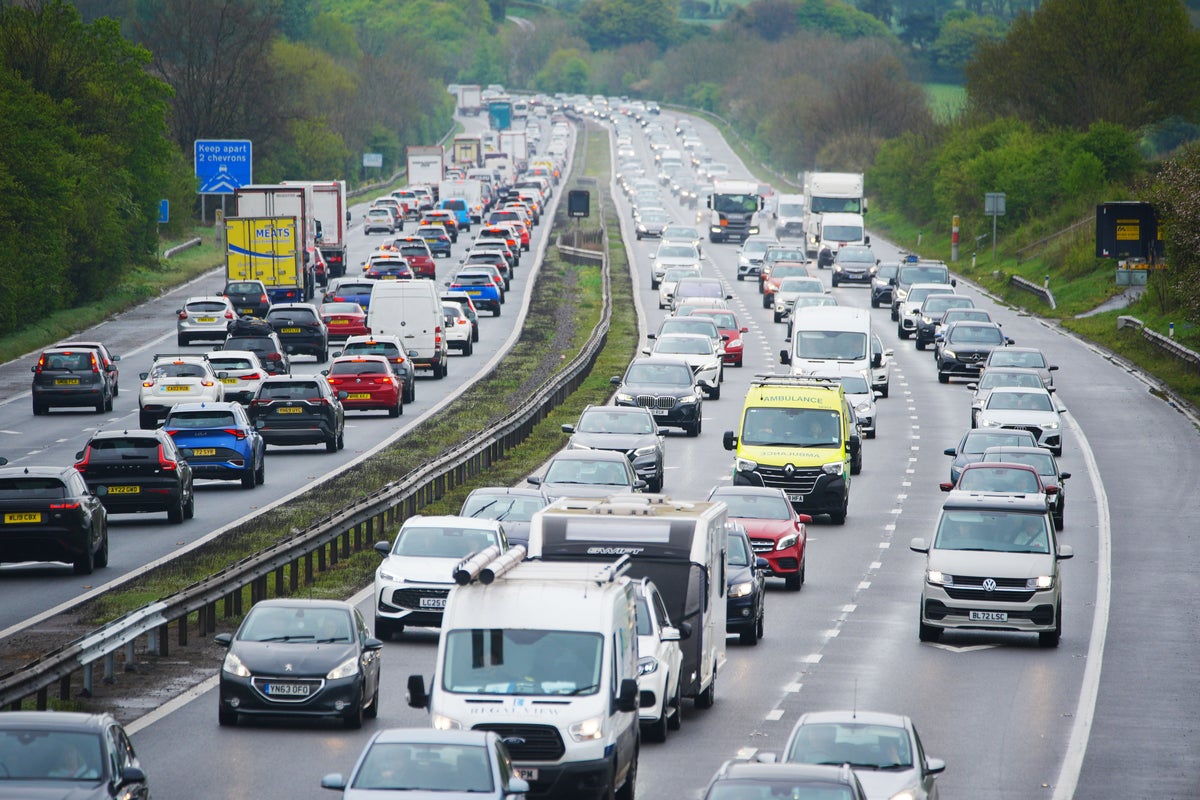
There were more than 120,000 road traffic casualties in Britain last year, including 1,600 fatalities, official figures show.
Nearly 30,000 people were killed or severely injured from January to December 2024, according to provisional estimates from the Department for Transport (DfT).
More than three in four (76 per cent) people killed in road traffic collisions were men, and 61 per cent of casualties of all severities were male, the DfT estimates.
Among the four main road user groups — cars, pedestrians, motorcyclists, and cyclists — motorcyclists experienced the most significant change in fatalities.
The number of motorcyclist deaths increased by 9 per cent in 2024 compared to 2023, according to the DfT. Some 343 riders lost their lives in crashes in 2024, up from 315 during the previous 12 months.
There was also an increase in pedestrian deaths, up 2 per cent from 405 in 2023 to 413 in 2024.
People aged 17–29 made up 24 per cent of road deaths and 28 per cent of all casualties, and those aged 70 and over were involved in 22 per cent of fatalities but just 8 per cent of overall casualties.
The map below shows the number of road traffic casualties across all local authority areas in Great Britain:
In total, there were 128,375 casualties of all severities last year – a 3 per cent decrease compared to 2023 – and 1,633 fatalities – a 1 per cent increase compared to the previous year.
The number of people killed or seriously injured remained largely unchanged compared to 2023 at 29,537.
The local authorities with the highest number of road traffic casualties:
- Kent - 3,921
- Surrey - 3,145
- Birmingham - 3,056
- Lancashire - 2,992
- Essex - 2,980
- Hampshire - 2,925
- Lincolnshire - 2,288
- Hertfordshire - 2,270
- West Sussex - 2,252
- Norfolk - 2,157
AA president Edmund King said: “Every death on our roads is a tragedy, and sadly we are still losing at least four people a day.
“If this level of loss was experienced on any other form of transport, there would be a national inquiry and public outcry.
“Yet, for some reason, we seem to accept this as the risk of moving around our communities. This should not be the case.”
Mr King called for the government’s upcoming road safety strategy to include “bold action” such as harsher penalties for not wearing a seatbelt or drug driving.
He also stressed the need to “safeguard newly qualified drivers” to ensure they feel confident on the road before “exposing them to additional risks” such as carrying passengers of a similar age.
A Department for Transport spokesperson said: “Every death on our roads is a tragedy and the safety of our roads is an absolute priority for this Government.
“We’ve been clear that more needs to be done in this space, which is why we are committed to delivering a new Road Safety Strategy – the first in over a decade and will set out next steps on this in due course.”
Planning rules eased for electric vehicle chargers
‘Alarming’ rise in number of motorcyclist deaths on British roads
Disabled student’s ‘agonisingly slow’ journey using only buses
Mother of jailed British activist admitted to hospital while on hunger strike
Paramedic asked student out for dinner and offered to remove her tampon in emergency







